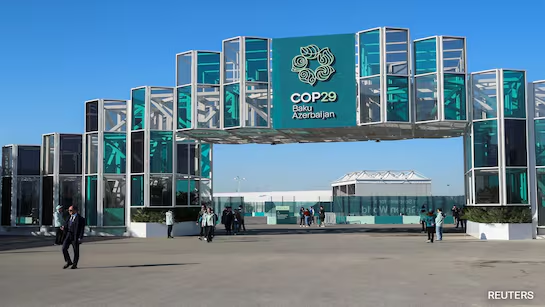Afghan Taliban officials will represent Afghanistan at the COP29 climate conference, scheduled to take place in Baku, Azerbaijan. This would be the first time that Taliban representatives would attend the global meeting since the Taliban took over Afghanistan in 2021. Even though the Taliban is not recognized as Afghanistan’s official government by the UN, officials from the group have been accorded the invitation by Azerbaijan as observers. They would, therefore, participate in a set of discussions on climate action.
The Context of Afghanistan’s Participation
Afghanistan’s participation in COP29 marked the most significant international global platform that the Taliban administration had attended since Kabul fell under their control in 2021. In fact, since then, the UN General Assembly has not let the Taliban occupy Afghanistan’s seat, primarily due to the continued skepticism over the Taliban’s rights towards women. However, officials from the National Environmental Protection Agency of Afghanistan arrived in Baku to observe the conference, meaning they needed more access to periphery discussions and bilateral meetings.
According to a diplomatic source, Afghanistan can only maintain observer status at COP 29 and does not fully participate as a consequence of the Taliban not being recognized within the UN system. The position above was maintained in 2016 when the UN Framework Convention on Climate Change did not allow official participation in Afghanistan during their period in power again with the Taliban.
Challenges Facing Afghanistan’s Climate Activists
The Taliban’s low profile at COP29 reflects deeper issues that Afghan environmental activists are facing, just like the rest of their country, which has been hindered in the past years due to Afghanistan’s lack of recognition and international isolation. In general, however, urgent climate-related needs in Afghanistan are recognized. The food insecurity in the country is deteriorating, and extreme weather events such as droughts and flash floods have devastated crops and put the livelihoods of Afghan farmers at risk.
Habib Mayar, deputy general secretary of the G7+, an association of countries under conflict, mentioned the consequences of Afghanistan’s isolation. “Afghanistan is left behind on the needs that it has,” Mayar said, adding that people pay a “double price” for the humanitarian crisis and a lack of attention globally. Most advocates say Afghanistan’s isolation affects efforts to address pressing environmental and food security needs for the country.
Azerbaijan’s Role and Observer Status
The host country of COP29, Azerbaijan, greeted Taliban officials with open arms to represent the country as observers. This will thus subject them to some restrictions. However, the Afghan delegation will not be provided with membership credentials reserved solely for the members of the fully recognized sovereign member states. The president of Azerbaijan and COP29 has chosen to remain silent on the status of an observer assigned to the Taliban.
This development has attendant questions about future international engagement with Afghanistan as the Taliban continues to place further restrictions on women’s education and freedom. Despite such policies, the Taliban still claims to respect women’s rights because they adhere to their version of Islamic law. However, international criticism is still at a low level.(More)
Climate Crisis in Afghanistan
Afghanistan is among the world’s most climate-vulnerable countries, with flash floods killing hundreds this year and long droughts affecting agriculture. An agricultural-dependent society, it faces increased food insecurity in addition to subsistence farming. International sanctions aside, however, Afghan officials have the voice to speak on a desire to cooperate on climate action to end the crisis.
The Taliban’s appearance at COP29 was a reminder of the intricacies of the intersection of climate needs and diplomatic hurdles, as Afghanistan poses a contested status globally and climate challenges of utmost urgency, which require international cooperation.















